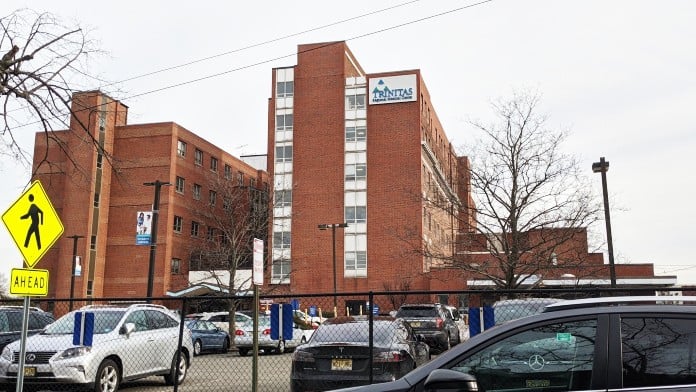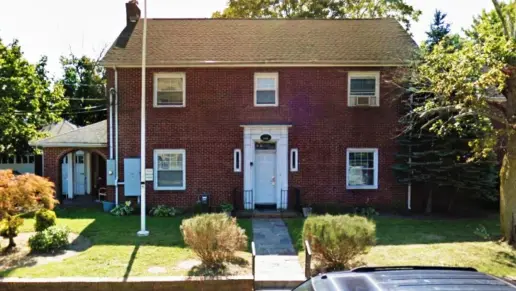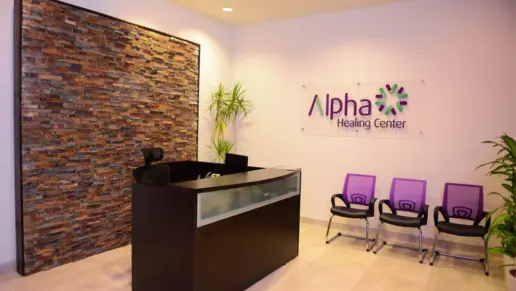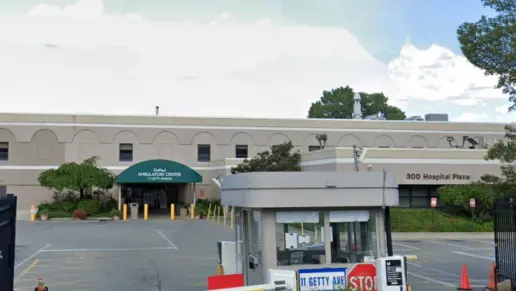About Trinitas Regional Outpatient Psychiatric Hospital
Specialty rehab programs at Trinitas Regional Outpatient Psychiatric Hospital include tailored care focusing on women's specific needs and experiences, gender-specific addiction treatment addressing unique challenges faced by men, and age-appropriate treatment for teens addressing adolescent-specific issues.
Patients at Trinitas Regional Outpatient Psychiatric Hospital will find the residential setting creates an immersive environment promoting full engagement in recovery away from daily triggers and the private rooms that give personal space for reflection and undisturbed rest during treatment. Nestled among the mountains, the majestic scenery fosters peace, grounding, and a sense of renewal. For recreation, patients can express themselves creatively with art activities, foster creativity and jam with other patients in the music room, or connect with nature and improve fitness with nearby hiking trails.
Trinitas Regional Outpatient Psychiatric Hospital has received accreditations from The Joint Commission.
 Payment Options
Payment Options
Private Insurance
Self-pay options
Sliding scale payment assistance
Medicare
Medicaid
Medicare
Military Insurance
 Levels of Care
Levels of Care
 Outpatient
Outpatient
They offer a full array of psychiatric and behavioral health services for children, adolescents, parents and families. Their goals include improving the school success, emotional, behavioral, family, social, communication and problem solving skills of children in distress. They help troubled and significantly impaired youth to overcome barriers and problems. They collaborate closely with schools, pediatricians and outside collateral support systems to insure stability and success. They focus on improving child and parent coping skills. Their unit has a huge number of programs, groups, therapeutic modalities and speciality services to help children and parents.
 Inpatient
Inpatient
The Child and Adolescent Inpatient Unit is comprised of two components: The Children’s Crisis Intervention Service (CCIS) and the Intermediate Sub-Acute Unit. The goal of both units is to provide psychiatric stabilization and treatment to children in extreme distress. The treatment is provided within the the guiding philosophy of a therapeutic community and implemented by a highly skilled multidisciplinary team. The inpatient units help to assure safe stabilization and positive discharge direction for children. They help children learn positive boundary, limit setting, self control, coping, communication and behavior skills.
 Intensive Outpatient
Intensive Outpatient
Clients who are exiting inpatient rehab, those who are experiencing crisis, and those who prefer to live at home while in treatment typically enroll in intensive inpatient programs (IOP). These programs feature frequent and robust care, generally requiring clients to participate in at least nine hours of care weekly, though many intensive outpatient rehabs offer up to 20 treatment hours per week. IOP services typically combine individual, group, and family counseling with recovery education and holistic therapies.
 Sober Living Homes
Sober Living Homes
A sober living home in New Jersey is for individuals who are recovering from alcohol and drug addiction issues. This type of halfway house residence is focused on helping individuals learn and apply the tools of recovery. The setting provides fellowship, support, and structure to prevent relapse. The homes are typically designed for either men or women, but some may offer space for women with their children.
 Intervention Services
Intervention Services
A drug intervention in New Jersey is more than a confrontational conversation. This organized effort is specific and goal-oriented. During the intervention, family members share specific examples of how the person's addiction has impacted their lives and spell out what they will do if the individual does not get treatment. The intervention also presents a clear treatment plan, which typically involves input from intervention services.
 24-Hour Clinical Care
24-Hour Clinical Care
24-hour clinical care in New Jersey provides a setting where you can withdraw from alcohol or drugs under close monitoring of experienced medical staff. These trained professionals can intervene at any time if needed. They can prescribe medications to reduce cravings and physical discomfort. Mental health professionals are also available to address any emotional and psychological challenges you experience as you begin your recovery journey.
 Medically Assisted Detox
Medically Assisted Detox
A medical detox is the safest way to wean your body off addictive substances. When you become physically dependent on alcohol or drugs, quitting abruptly can cause a host of challenging and uncomfortable withdrawal symptoms. In medically assisted detox, a team of medical professionals will be on hand to monitor any symptoms, to provide medication if possible, and to help keep you as safe and as comfortable as possible throughout this process.
 Programs
Programs
 Adolescence program
Adolescence program
 Adult program
Adult program
 Program for men
Program for men
 Program for women
Program for women
 Young adult program
Young adult program
 Children program
Children program
 LGBTQ program
LGBTQ program
 Military program
Military program
 Postpartum program
Postpartum program
 Total Beds
Total Beds
98
 Settings & Amenities
Settings & Amenities
-
Art activities
-
Residential setting
-
Private rooms
-
Music room
-
Hiking
-
Mountain Views
-
Farm setting
-
Gardens
- Walking Trails
-
Wilderness setting
 Treatment
Treatment
 Alcoholism
Alcoholism
The goal of treatment for alcoholism is abstinence. Those with poor social support, poor motivation, or psychiatric disorders tend to relapse within a few years of treatment. For these people, success is measured by longer periods of abstinence, reduced use of alcohol, better health, and improved social functioning. Recovery and Maintenance are usually based on 12 step programs and AA meetings.
 Drug Addiction
Drug Addiction
Drug rehab in New Jersey is the process of addressing the complex issues involved with addiction. Challenges are identified and addressed through individual and group counseling. Participants learn how to manage these issues without the use of substances.
 Mental Health and Substance Abuse
Mental Health and Substance Abuse
A combined mental health and substance abuse rehab has the staff and resources available to handle individuals with both mental health and substance abuse issues. It can be challenging to determine where a specific symptom stems from (a mental health issue or an issue related to substance abuse), so mental health and substance abuse professionals are helpful in detangling symptoms and keeping treatment on track.
 Opioid Addiction
Opioid Addiction
Opioid rehabs specialize in supporting those recovering from opioid addiction. They treat those suffering from addiction to illegal opioids like heroin, as well as prescription drugs like oxycodone. These centers typically combine both physical as well as mental and emotional support to help stop addiction. Physical support often includes medical detox and subsequent medical support (including medication), and mental support includes in-depth therapy to address the underlying causes of addiction.
 Clinical Services
Clinical Services
 Cognitive Behavioral Therapy
Cognitive Behavioral Therapy
Cognitive Behavioral Therapy (CBT) is a therapy modality that focuses on the relationship between one's thoughts, feelings, and behaviors. It is used to establish and allow for healthy responses to thoughts and feelings (instead of unhealthy responses, like using drugs or alcohol). CBT has been proven effective for recovering addicts of all kinds, and is used to strengthen a patient's own self-awareness and ability to self-regulate. CBT allows individuals to monitor their own emotional state, become more adept at communicating with others, and manage stress without needing to engage in substance abuse.
 Dialectical Behavior Therapy
Dialectical Behavior Therapy
Their Dialectical Behavior Therapy is an evidence-based psychotherapeutic program designed to treat adolescents and young adults (ages 12-18) who exhibit difficulty regulating their emotions and behavior. Developed by Dr. Marsha Linehan, DBT was originally created to treat adult women who were chronically suicidal, self-injuring, and exhibiting symptoms of Borderline Personality Disorder. It has since been adapted for teens and families. Through a supportive and validating therapeutic environment, behavioral skills are developed to improve impulse control, emotion regulation, interpersonal effectiveness, overall functioning and replacing harmful ways of thinking and behaving with healthy ones.
 Group Therapy
Group Therapy
Their extensive group psychotherapy services helps children with a wide variety of difficulties. Children and adolescents are able to share their experiences and learn that they are not alone in their struggles, anxiety and problems. Their specialized groups include: Social Skills, Anger Management, Depression/Anxiety, Teen Challenges, Separation and Loss, Divorce and Parenting Skill-Building.
 Individual Therapy
Individual Therapy
In individual therapy, a patient meets one-on-one with a trained psychologist or counselor. Therapy is a pivotal part of effective substance abuse treatment, as it often covers root causes of addiction, including challenges faced by the patient in their social, family, and work/school life. They offer short-term, solution-focused therapy to assist children and adolescents build the skills they need to overcome their problems.
 Trauma Therapy
Trauma Therapy
They provide evidence-based trauma treatment and services to children, adolescents and their families who experience and/or witness traumatic events. Utilizing interventions developed by the National Child Traumatic Stress Network (NCTSN) and the CARES Institute/Rowan University, they work with trauma-impacted families offering brief, focused, short-term psychotherapeutic intervention in individual and group formats to reduce the incidence, severity, and duration of acute stress and PTSD conditions.
 Family Therapy
Family Therapy
They provide family therapy to improve parent and guardian effectiveness and the support network of the children they serve. Their systems approach brings together the individuals most involved in a child’s life to improve communication and to build effective problem solving skills.
 Creative Arts Therapy
Creative Arts Therapy
Creativity is inherently healing, and can help those in recovery express thoughts or feelings they might not otherwise be able to. Creative arts therapy can include music, poetry/writing, painting, sculpting, dance, theater, sandplay, and more. Unlike traditional art, the final product matters far less than the experience of creation and expression itself.
 Experiential Therapy
Experiential Therapy
Experiential therapy is a form of therapy in which clients are encouraged to surface and work through subconscious issues by engaging in real-time experiences. Experiential therapy departs from traditional talk therapy by involving the body, and having clients engage in activities, movements, and physical and emotional expression. This can involve role-play or using props (which can include other people). Experiential therapy can help people process trauma, memories, and emotion quickly, deeply, and in a lasting fashion, leading to substantial and impactful healing.
 Accreditations
Accreditations

Joint Commission
The Joint Commission, formerly known as JCAHO, is a nonprofit organization that accredits rehab organizations and programs. Founded in 1951, the Joint Commision's mission is to improve the quality of patient care and demonstrating the quality of patient care.
Joint Commission Accreditation: Yes



